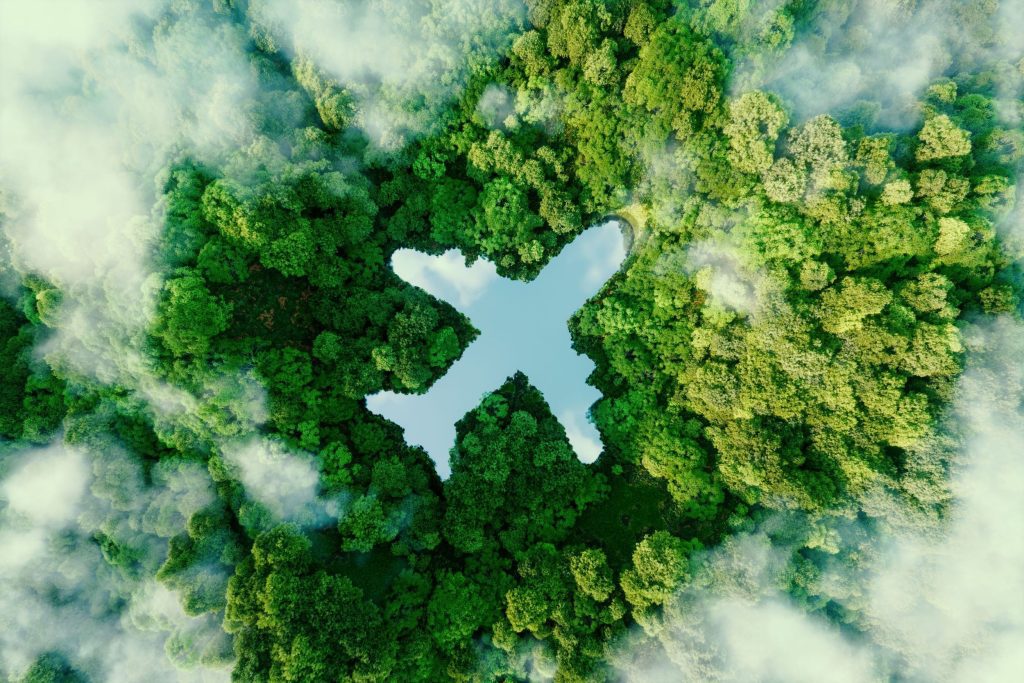Sustainable Tourism: When “Going Green” is Just the Beginning

According to the latest research from booking.com, 75% of people want to travel more sustainably [1].
And though it appears hotels, tour operators, and popular tourism destinations across the world have taken note of this desire, there still seems to be a misconception about what travelling sustainably actually means.
If the term is misconstrued, brands could end up focusing purely on environmental factors. And though limiting their impact on the environment is a great start and a key tenet of becoming more sustainable, it’s important to understand that eco-consciousness is just one part of a much larger puzzle.
In this article, we will discuss how sustainability is becoming increasingly important in the tourism industry, why the pursuit of sustainable practices should go far beyond environmental considerations, and how certifications help brands become sustainable in the truest sense of the word.
What does it mean to travel sustainably?
You only need to look at the same booking.com research to see why confusion still exists around the concept of sustainability. Out of the 31,000 travellers surveyed, 1 in 3 respondents felt that making sustainable travel choices was somewhat pointless as they think the damage to the environment has already been done and is irreversible.
This insight into consumer thinking and motivation indicates that “sustainability” and “eco-consciousness” are often used interchangeably despite there being two vital differences between the terms.
When we look at sustainability purely through an environmentally conscious lens, we neglect the true meaning of the word the tourism industry strives to achieve. Instead, sustainability should cover a much broader scope than just environmental impact and extend to social responsibility and ongoing economic development.
In addition, when a brand chooses to be eco-conscious, more often than not, it focuses on minimising the harm it could potentially cause to the environment by adopting initiatives that aim to, for example, conserve water, reduce waste, and become more energy efficient.
In contrast, sustainability requires brands to take a longer-term and more proactive approach that not only reduces negative impact but also positively contributes to a region’s continued growth and prosperity.

Becoming Certified and Sustainable
Tourism certification scheme owners have been considering the need for a more comprehensive approach to sustainability for several years now.
The Global Sustainable Tourism Council (GSTC) is a most prominent example of this. Widely regarded as the authority on the subject, GSTC uses four distinct pillars within its criteria rather than narrowing their focus to the purely environmental.
The pillars – sustainable management, socioeconomic impacts, cultural impacts, and environmental impacts – show that though taking steps to mitigate climate change and preserve the planet are vital components for certification, the accommodation providers, tour operators and transport companies must also demonstrate their ability to embrace the wider view of sustainability.
When you delve deeper into the criteria accompanying each pillar, it’s evident that proactive steps aiming to safeguard a region’s economic future are just as important as mitigating environmental harm. For example, brands must effectively engage with the locations where they operate, prioritise local employment, purchasing, and entrepreneurship, and make efforts to protect and present a land’s cultural heritage.
When brands and destinations showcase this kind of proactiveness to help a region thrive, they send a message to their potential customers. They tell them their efforts to become more sustainable are not simply about greenwashing or ticking boxes. Instead, they are making a long-term commitment to the regions in which they operate to ensure they leave places better than when they arrived, a desire that is interestingly shared by 66% of global travellers [2].

The Impact of Sustainable Tourism Certifications
Sustainable tourism certification has provided a hugely popular and influential mechanism for brands to proudly display their credentials by attaining an internationally recognised seal of approval. In 2022, Türkiye (Turkey) became the world’s first government to collaborate with GSTC to develop its own program.
With the aim of restructuring its tourism industry to provide more responsible holiday options for the tens of millions of tourists that the region welcomes each year, Turkey has mapped out a 3-year plan with its Sustainable Tourism Certification Program. And with the value of its tourism industry set to rise from $54.3 billion in 2024 to an estimated $100 billion in 2028, it’s clear that the ‘land of four seasons’ sees the benefit of appealing to a more environmentally and socially conscious market.
Sustainable Tourism Certification Options
As an accredited Certification Body for a number of sustainable tourism certification programs – including GSTC, Green Key, Green Globe Standard, Good Travel Program and Earth Check – Control Union offers comprehensive third-party audits to accommodation providers, tour operators and tourist destinations who want to add proof to their promise.
We have also developed and implemented our own certification scheme, Green Choice, as a sustainable tourism standard based on policies already established around the world and adapted to local conditions. Developed in 2010, and the first standard to be accredited in product certification (ISO 17065), it has recently been recognised by Travalyst as a sustainability certification compliant with its criteria.
We also offer expert auditing for a range of certifications that companies may deem more suitable for their unique needs.
Browse our Tourism page to learn more about our capabilities, process and experience, or search for the right program for you via our Certification Programs page.
References
[1] Booking.com 2024, ‘Sustainable Travel 2024’, 22 April 2024 (accessed 15 August 2024) https://news.booking.com/download/904910bb-db77-4886-9ead-accbf87ad891/sustainabletravelreport2024.pdf
[2] Idem

How can we help you?
Can we help you with more specific information about our Testing, Inspection and/or Certification Services? Or maybe some advice in your language? Any other questions? Let us know and we will gladly help.